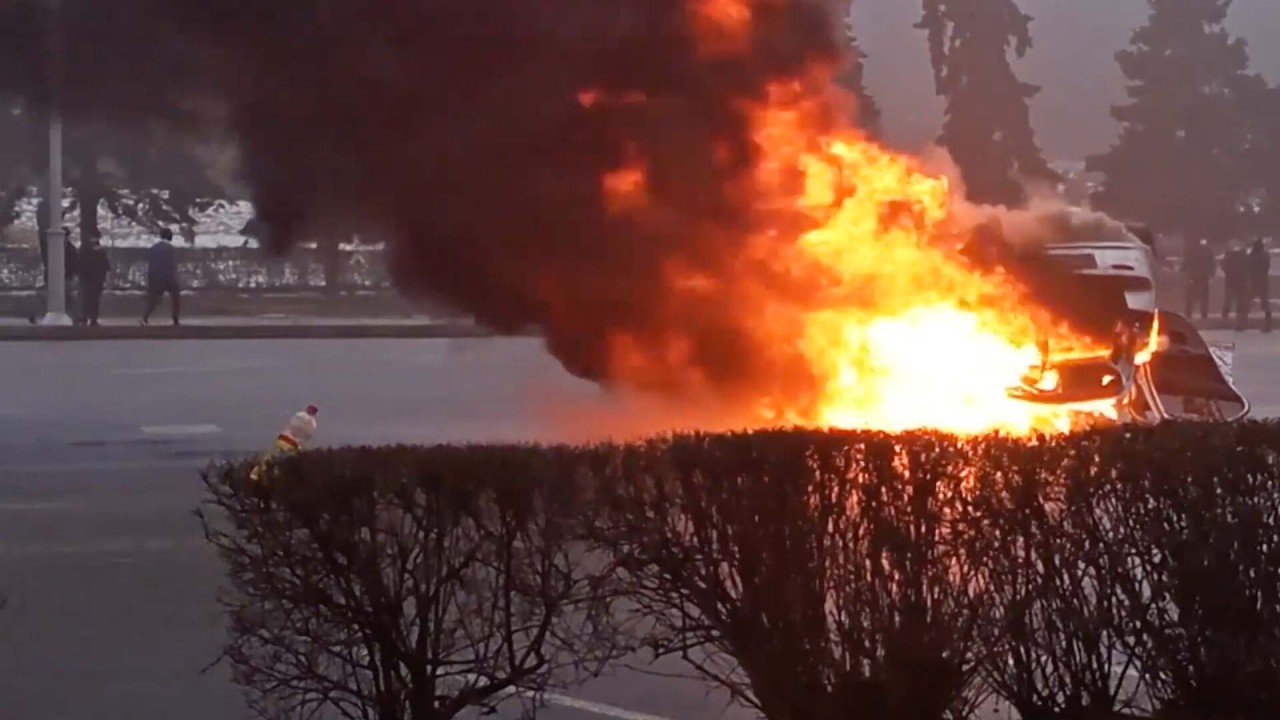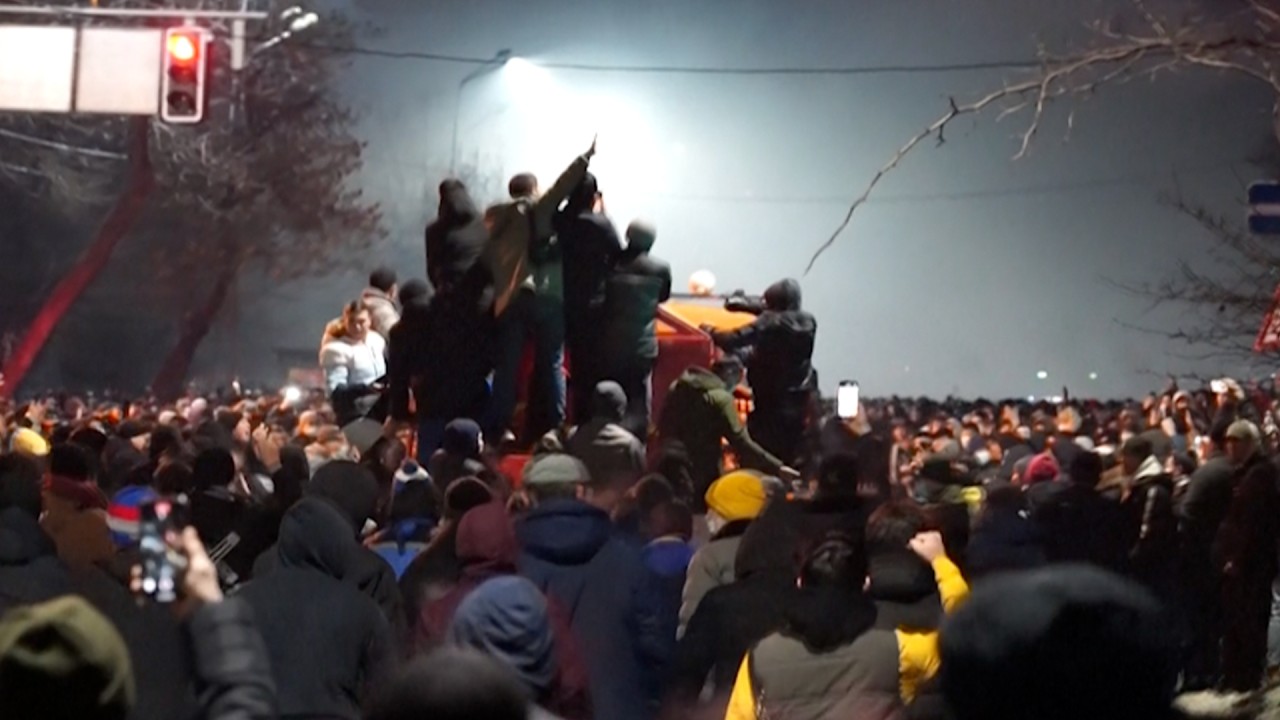
Chinese foreign minister condemns Kazakh unrest, vows to help fight ‘three evil forces’
- Wang Yi refers to Kazakhstan’s anti-government protests as terrorism and offers cooperation from Chinese law enforcement and security agencies
- Beijing will help to ‘safeguard the political system and regime safety of the two countries’, he says
China would help the Kazakh government to fight terrorism, separatism and religious extremism, the Chinese foreign ministry quoted Wang as saying in a telephone call with Kazakh counterpart Mukhtar Tleuberdi on Monday.
The phone call came three days after a message from Chinese President Xi Jinping to Kazakh counterpart Kassym-Jomart Tokayev, in which the former voiced support for the Kazakh authorities’ attempts to stifle the unrest but did not follow Tokayev by saying that foreign-trained terrorists were behind the protests.
Tokayev ordered troops to shoot to kill without warning and requested Russian forces to help restore order through a mechanism in the Collective Security Treaty Organisation, a Moscow-led regional alliance.
“China is willing to further cooperation between [both countries’] law enforcement and security agencies and on bilateral work against interference,” the Chinese ministry quoted Wang as saying, “to safeguard the political system and regime safety of the two countries, to prevent and oppose any attempts at ‘colour revolutions’, and to work together against interference and infiltration by any foreign forces.
How will China’s economic interests be affected by unrest in Kazakhstan?
“The sudden rise of the unrest in Kazakhstan showed that the situation remains dire in Central Asia. It shows again that some foreign forces do not want our region to be peaceful and calm.”
China wanted Kazakhstan to be a stable neighbour and business partner, and would not contradict the official Kazakh narrative, said Raffaello Pantucci, a senior fellow at S. Rajaratnam School of International Studies in Singapore.
“From the Chinese perspective, why would they contradict the Kazakhs within this?” he said. “What do they know about Kazakhstan more than the Kazakhs know about themselves?”
China would have “zero interest in creating an enemy or adversary”, he said.
Pantucci said China would not intervene in the way Russia had, and the SCO was unlikely to do so because of China’s lack of military experience, but the unrest could cause Beijing to re-evaluate the security situation in the region.
Anti-government protests in Kazakhstan began after fuel prices were hiked up on New Year’s Day. They turned violent within days, with protesters setting cars on fire and seizing government buildings and the airport in Almaty, the largest city.
The rise of liquefied petroleum gas prices was caused by a phased removal of state subsidies for domestic consumers that allowed the market to decide prices.
The protests soon expanded to other issues, including poor working conditions and accusations of corruption linked to the family of Nursultan Nazarbayev, the former president who stepped down in 2019 after 29 years in power.



